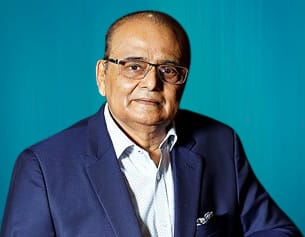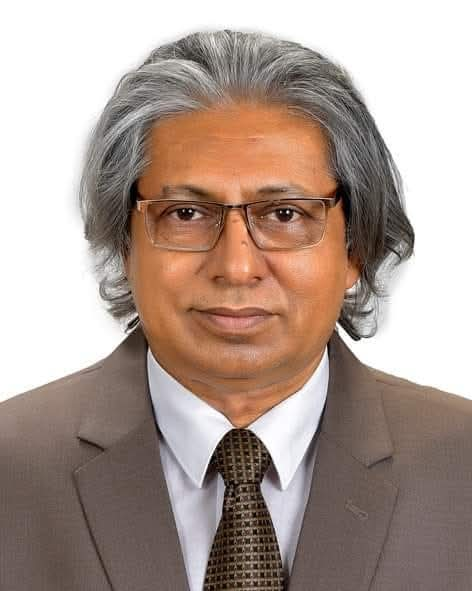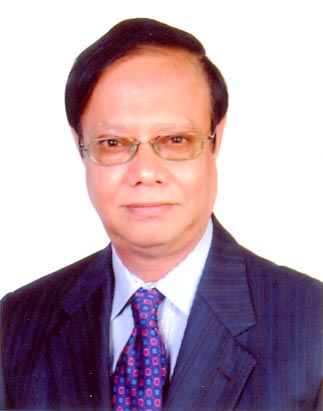advisory panel

Dr. Zaidi Sattar
Dr. Zaidi Sattar is currently serving as the Chairman of the Policy Research Institute of Bangladesh (PRI). Dr. Sattar began his professional journey in 1969 as a member of the elite Civil Service of Pakistan (CSP). Following Bangladesh’s independence, he held various administrative positions within the Government, both at the district and secretariat levels. He earned his Ph.D. in Economics from Boston University and has taught economics at several academic institutions, including the University of Dhaka, Catholic University of America, Boston University, and the University of Massachusetts.
Transitioning from civil service to international development, Dr. Sattar became a trade economist and served as a World Bank Adviser to Bangladesh’s National Board of Revenue, focusing on tariffs, customs, and trade reform. From 1997 to 2007, he was a Senior Economist at the World Bank, where he led the policy dialogue on trade and tariff reforms. He was also the team leader and co-author of the influential South Asia Trade Policy Review (1999–2002).
A key contributor to Bangladesh’s development planning, Dr. Sattar played a central role in drafting several national plans, including the 6th (2011–2015), 7th (2016–2020), and 8th (2021–2025) Five Year Plans, as well as the Perspective Plans 2010–2021 and 2021–2041. Recognizing the growing importance of environmental sustainability, he and the PRI team integrated green growth priorities into the national planning framework through the 8th Five Year Plan, the Perspective Plan 2041, and the Bangladesh Delta Plan 2100.
Most recently, as Team Leader, Dr. Sattar led the completion of two significant World Bank reports: the Country Climate and Development Report (CCDR) and the Climate Change Institutional Assessment (CCIA).
Widely regarded as a leading expert on trade policy in Bangladesh, Dr. Sattar regularly advises the Government on trade, industry, macroeconomic, and development issues. He is an active voice in public policy debates—delivering lectures at universities, speaking at conferences, and contributing opinion pieces to national journals and newspapers. He is a Senior Fellow at the Bangladesh Institute of Development Studies (BIDS), and a life member of both the Bangladesh Economic Association (BEA) and the American Alumni Association (AAA).

M.S. Siddiqui
M.S. Siddiqui is an economist and former Non-Government Adviser to the Bangladesh Competition Commission. He regularly contributes columns to various newspapers and periodicals and is often featured in the mass media for his insights on policy matters. He is the author of eight books, including:
1. Default Loan Culture
2. Regulatory Reforms: Bangladesh Perspective
3. Financial Sector Reform
4. Reform for Economic Development
5. Legal & Illegal Corruption
6. Ease of Doing Business, Ease of Economic Development
7. Hundi: Demand & Supply
8. Corruption Shell Company

Dr. Ahsan H. Mansur
Dr. Mansur is currently serving as the Governor of Bangladesh Bank. Prior to this role, he was the Executive Director of the Policy Research Institute (PRI).
He began his professional journey in 1976 as a Lecturer in Economics at the University of Dhaka. Later that year, he moved to Canada for advanced studies in Economics. From 1978 to 1981, while pursuing graduate studies at the University of Western Ontario, he also taught undergraduate economics courses as a research and teaching assistant. In 1981, Dr. Mansur joined the International Monetary Fund (IMF) through its Economist Programme.
Throughout his distinguished career at the IMF, Dr. Mansur worked extensively with countries across the Middle East, Asia, Africa, and Central America. He held key positions in both functional (Fiscal Affairs, and Policy Review and Development) and regional departments (Middle East and Central Asia, and Asia). Notably, he served as the IMF’s Senior Resident Representative to Pakistan from 1998 to 2001, and as Fiscal Advisor to Bangladesh’s Ministry of Finance between 1989 and 1991. During his time in Bangladesh, he played a pivotal role in the introduction of the Value Added Tax (VAT) in 1991.
Dr. Mansur also served as Division Chief of the Gulf Cooperation Council (GCC) Division and concurrently as IMF Mission Chief for Saudi Arabia, Kuwait, and Oman. After taking early retirement from the IMF, he co-founded the Policy Research Institute (PRI) of Bangladesh and served as its founding Director and Executive Director. Between 2017 and 2023, he also held positions at BRAC Bank PLC, first as a Director and later as Chairman.
An accomplished academic, Dr. Mansur has published widely in esteemed journals such as Econometrica, Journal of Economic Theory, and IMF Staff Papers. He has contributed to and edited several books, including Stock Market Developments in the Countries of the Gulf Cooperation Council (co-edited with Fernando Delgado), published by Palgrave Macmillan in its Finance and Capital Markets Series in November 2008.
Dr. Mansur has received several prestigious academic honors, including the Ford Foundation Dissertation Fellowship in International Economics (1979–81), Special University Scholarship and Graduate Students Award from the University of Western Ontario (1977–81), McMaster University Graduate Scholarship (1976–77), and the First Grade Merit Scholarship from the University of Dhaka (1970–75).
He earned his Ph.D. in Economics from the University of Western Ontario in 1982, his M.A. from McMaster University in 1977, and his B.A. (Hons.) in Economics with First Class and distinction in Mathematics from the University of Dhaka in 1974.
